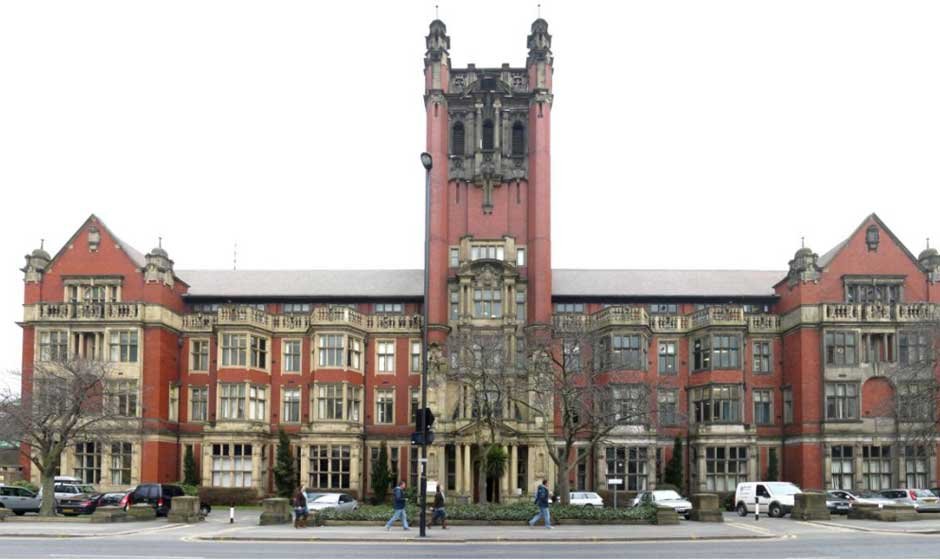Choosing the right university is a pivotal decision that shapes both academic and personal growth. Durham University and Newcastle University are prominent institutions in the UK, each offering unique experiences. This article delves into various aspects to provide objective comparisons to help students choose the right university between the two.
Academic Rankings and Reputation
Durham University consistently ranks among the top UK universities. According to the Complete University Guide 2025, it holds the 7th position nationally. Globally, it is ranked 89th in the QS World University Rankings 2025. Durham is renowned for its strengths in humanities, social sciences, and law.
Newcastle University, while slightly lower in rankings, maintains a strong academic presence. It is positioned 129th in the QS World University Rankings 2025 and 157th in the Times Higher Education World University Rankings 2025. Newcastle is particularly noted for its research output and impact.

Acceptance Rates and Admissions
Durham University has a competitive acceptance rate of approximately 41%, with offer rates varying between 60% to 70% depending on the program. Applicants are typically expected to have strong academic credentials, especially for sought-after courses like Law or Medicine.
Newcastle University has a higher acceptance rate, around 87%, making it more accessible to a broader range of applicants. Despite this, the university maintains rigorous academic standards and offers quality education across various disciplines.
Best Courses
Durham University and Newcastle University are both prestigious institutions in the UK, each offering a range of top-quality courses. However, their strengths in specific fields can differ based on their unique offerings, reputations, and resources. Here’s a comparison of some of their best-known courses:
Durham University
- Law: Durham’s Law School is highly regarded, often ranked among the top in the UK. The law program is known for its academic rigor and strong focus on research.
- History: Durham has a strong history department with a focus on global and British history, particularly medieval history.
- Theology and Religion: Durham is famous for its excellent Theology and Religion program. It is known for its interdisciplinary approach and global perspective, offering research strengths in Christian theology, philosophy, and ethics.
- Business and Management: Durham Business School is one of the top-ranked business schools in the UK, offering both undergraduate and postgraduate courses with strong links to industry.
- Psychology: Durham’s Psychology department is highly rated, with a strong focus on research-led teaching, especially in areas like cognitive neuroscience, developmental psychology, and clinical psychology.
Newcastle University
- Engineering: Newcastle is renowned for its engineering courses, particularly in civil and mechanical engineering. The university offers modern, hands-on training with strong industry ties, particularly in the field of renewable energy.
- Medicine: The Newcastle University Medical School is highly prestigious, offering excellent clinical training opportunities. Its courses are well known for being research-oriented, particularly in areas like cancer research, genetics, and public health.
- Architecture: Newcastle is also highly regarded for its architecture program. The course focuses on both creative design and technical knowledge, and the university has strong ties with the industry, facilitating work placements.
- Computer Science: Newcastle offers an excellent computer science program, with a focus on software engineering, AI, and cybersecurity. It also offers cutting-edge research opportunities in digital innovation.
- Arts and Social Sciences:Newcastle has a strong reputation for its arts programs, including courses in sociology, politics, and English literature. The university encourages interdisciplinary study and offers unique opportunities for research in these fields.
Accommodation: On-Campus and Off-Campus Options
On-Campus Accommodation
Durham University operates a collegiate system, where students become members of one of its colleges, each offering a distinct community and accommodation experience. Options range from historic buildings like Durham Castle to modern residences, with both catered and self-catered plans. Weekly costs vary from £183.23 to £274.58, most are standard rooms with shared bathroom facilities and en-suite rooms.
Newcastle University provides a range of self-catered residences for both undergraduate and postgraduate students. These accommodations are strategically located, either within walking distance to the campus or close to public transport links. Rooms come with shared or private facilities, and communal areas are available for socializing. Rent is inclusive of utility bills, Wi-Fi, and personal possessions insurance. Weekly costs range from £98 to £231.
Off-Campus Accommodation
When comparing off-campus accommodation between Durham University and Newcastle University, students will find both cities offer a range of options, though each caters to slightly different preferences and budgets.
Cost: Durham student housing is generally more affordable for students to rent compared to Newcastle. According to recent surveys, both cities are among the best-value locations for student accommodation in the UK, but Durham often edges out slightly in terms of overall cost.
Variety: Newcastle has a larger metropolitan area, offering a wider range of modern Newcastle student accommodation options, including private apartments, studios, and shared houses. Durham, being smaller and more collegiate, offers more traditional housing and college-affiliated residences.
Student Lifestyle: Off-campus life in Newcastle typically means access to a vibrant nightlife, shops, and cultural activities. In contrast, Durham offers a quieter, more academic environment, often appealing to students who prefer a peaceful study setting.
For students seeking reliable and verified off-campus housing in either city, uhomes.com is a trusted platform, featuring a wide range of listings with transparent and exclusive pricing, stylish amenities, and authentic reviews to help students make informed choices.
Student Life and Extracurricular Activities
Durham University offers a vibrant student life centered around its collegiate system. Each college hosts its own events, societies, and traditions, fostering a strong sense of community. The Durham Students’ Union oversees over 200 student clubs and organizations, ranging from academic societies to arts and cultural groups. Notably, the Durham Union Society, founded in 1842, is one of the university’s largest societies, promoting debate and discussion.
Newcastle University boasts a dynamic and inclusive student environment. The university encourages students to engage in various clubs and societies, including unique ones like the Greggs Society, which celebrates the popular high street bakery. The city of Newcastle itself is known for its vibrant nightlife, cultural events, and student-friendly atmosphere, enhancing the overall student experience.
Campus and Facilities
Durham University is situated in the historic city of Durham, characterized by its picturesque landscapes and medieval architecture. The university’s facilities are integrated within the city, offering students a unique blend of academic and cultural experiences. Recent sustainability initiatives have placed Durham 19th globally in the QS World University Rankings for Sustainability 2024, reflecting its commitment to environmental responsibility.
Newcastle University is located in the heart of Newcastle upon Tyne, a bustling city known for its rich history and modern amenities. The university’s campus spans 50 acres and includes state-of-the-art facilities, such as the Philip Robinson Library, which houses over a million books and has received multiple awards for excellence.
Career Prospects and Employability
Durham University graduates are highly sought after, with the university ranking 8th for graduate prospects in the UK. The institution’s strong academic reputation and extensive alumni network contribute to favorable employment outcomes for its students.
Newcastle University also demonstrates impressive employability statistics, with a placement rate of 94%. The university’s strong ties with industry leaders like Google, Microsoft, Tesla, and Amazon provide students with valuable internship and job opportunities.
Conclusion
Both Durham University and Newcastle University offer exceptional educational experiences, each with its distinct advantages. Durham appeals to those seeking a traditional collegiate environment with a strong emphasis on academic excellence and community. In contrast, Newcastle offers a vibrant urban campus with diverse opportunities for social engagement and professional development. Prospective students should consider their personal preferences, academic goals, and desired lifestyle when choosing between these two esteemed institutions.










